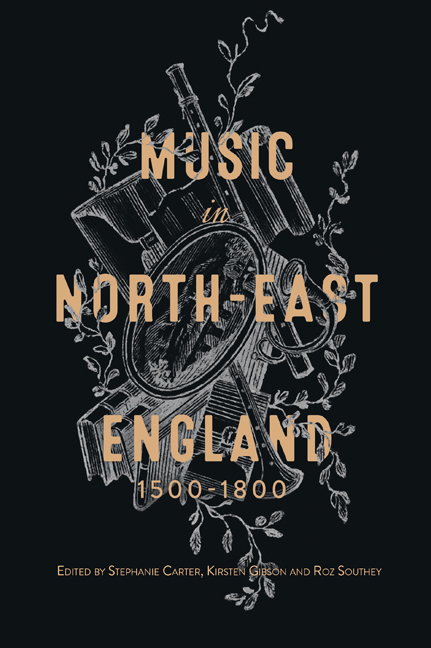13 - Between the Broadside Ballad and the Folksong: Print and Popular Songs in Eighteenth-Century Newcastle upon Tyne
Published online by Cambridge University Press: 17 November 2020
Summary
Newcastle upon Tyne's first permanent printer, John White (1689–1769), was famed for his publication of broadside ballads, and according to the renowned local engraver Thomas Bewick (1753–1828) the streets of the town were ‘greatly enlivened’ by the singing of these songs. Although they were (and still are) sometimes portrayed as a lingering remnant of bygone days, such songs were not part of a static tradition. Even in their printed form they reveal a dynamic nature. The eighteenth century, in fact, sits between the seventeenth-century heyday of the broadside ballad and the nineteenth-century emergence of the folksong, and this investigation of print and popular song in Newcastle provides an opportunity to consider that transitionary phase as it was experienced on the banks of the Tyne. Attention is focused on the songs that were published in the town, considering these within the wider social milieu of singing, and exploring what their format and content reveal about changing attitudes. This exposes an increasingly audible local culture that reflects developments in both the print trade and the political context in which the songs were produced.
During the seventeenth century the term ‘ballad’ was synonymous with the ‘broadside ballad’, which was a single song printed on one side of a sheet of paper. These broadsides were not only very affordable but could also be easily transported by both ballad sellers and more general street hawkers and chap-men (itinerant salesmen). Consequently, printed ballads had become a ubiq-uitous commodity. Mark Hailwood estimates that at least 20 million broadside ballads were printed between 1557 and 1709. It was, however, when the print trade expanded beyond the confines of London and the university towns at the beginning of the eighteenth century that Newcastle became associated with the publishing of these songs. The scale of production is difficult to judge, but the town quickly gained prominence as one of England's largest print centres, and songs evidently formed a lucrative part of this trade. Based on a survey of extant copies, Peter Wood has concluded that during the early decades of the nineteenth century Newcastle's output was considerably larger than that of other provincial towns, and it is not unreasonable to assume that this was the case throughout the eighteenth century.
- Type
- Chapter
- Information
- Music in North-East England, 1500–1800 , pp. 261 - 281Publisher: Boydell & BrewerPrint publication year: 2020



